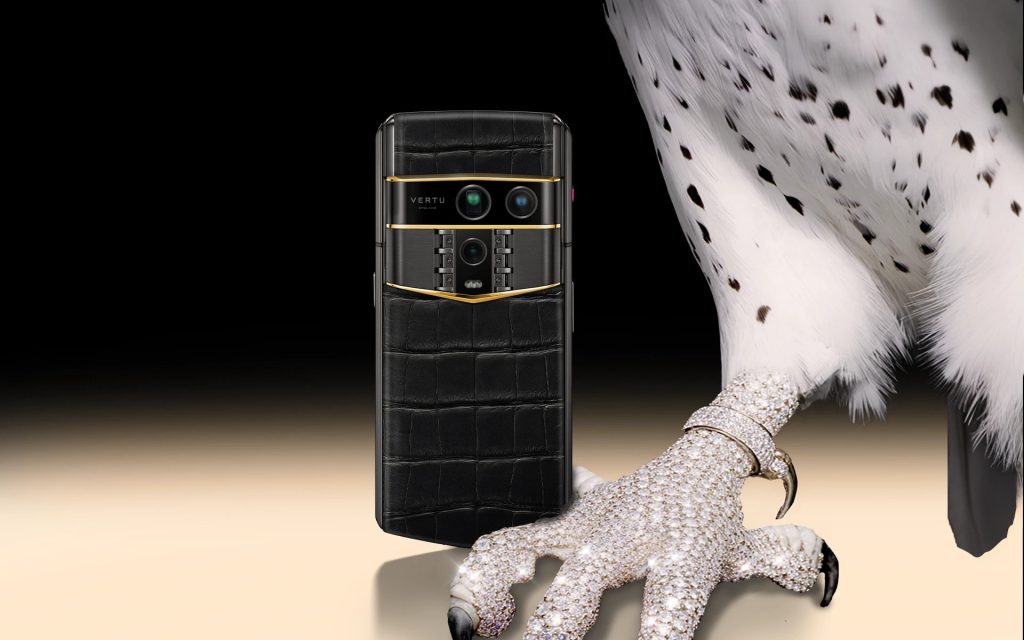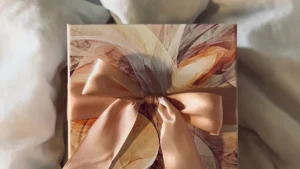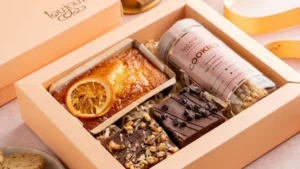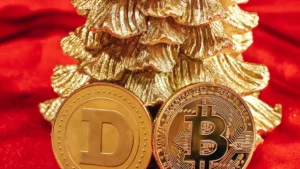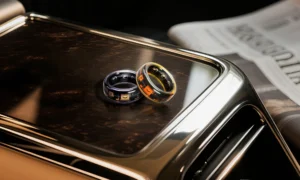Key Takeaways:
- VERTU phones utilize sapphire crystal screens (9 Mohs hardness) that resist scratching from virtually all everyday materials except diamond
- Exotic materials include Grade 5 titanium aerospace alloys, Liquidmetal amorphous metals, and hand-stitched alligator/lizard skins
- Ruby bearings beneath keypads—borrowed from Swiss watchmaking—enhance tactile response and durability through reduced friction
- The VERTU Agent Q combines ceramic frame construction, carbon fiber reinforcement, and precious metal accents with modern AI security
- Material costs alone represent 30-40% of retail price, compared to 15-20% for mainstream smartphones
- Each device requires 500+ hours of artisan work to process, finish, and assemble premium substrates
Sapphire Crystal: The Screen That Redefines Durability Standards
VERTU pioneered sapphire crystal smartphone screens with the 2002 Signature model, establishing a material standard that mainstream manufacturers still avoid due to cost constraints. Sapphire crystal rates 9 on the Mohs hardness scale—only diamond (rating 10) can scratch it. This means keys, coins, sand, and even steel tools cannot damage the display surface during normal use.
The 2015 New Signature Touch advanced this technology further with a 5.2-inch curved display manufactured from a single piece of sapphire crystal. Creating curved sapphire requires heating synthetic corundum to 2,040°C and precision-molding under controlled conditions—a process that yields only 30-40% usable screens compared to 85-90% yields for standard glass. The material cost per sapphire screen exceeds $150, versus $3-5 for Gorilla Glass equivalents.
The VERTU Agent Q maintains sapphire crystal across its 6.7-inch display, now enhanced with anti-reflective nano-coatings that improve outdoor visibility by 40% compared to untreated sapphire. The material's optical clarity remains unchanged after years of daily use, unlike Gorilla Glass that develops micro-abrasions reducing screen brightness over time.
Aerospace-Grade Metals: Titanium and Liquidmetal Engineering
Grade 5 titanium, introduced in VERTU's 2007 Ascent Ti model, represents the same Ti-6Al-4V alloy used in aircraft fuselages and surgical implants. This material offers a strength-to-weight ratio 40% superior to stainless steel while weighing 45% less. The alloy's corrosion resistance prevents degradation from sweat, saltwater, or environmental exposure that tarnishes lesser metals within months.
Titanium machining requires specialized carbide tooling and cutting speeds 60% slower than aluminum processing. The material work-hardens during machining, meaning cutting tools dull rapidly and must be replaced frequently. These factors increase manufacturing costs by 8-12 times compared to standard aluminum smartphone frames. VERTU's titanium components undergo multi-axis CNC machining followed by hand-polishing that requires 20-30 hours per device.
The 2006 Ascent Racetracks Edition introduced Liquidmetal—an amorphous metal alloy lacking crystalline structure. Unlike conventional metals that fracture along grain boundaries, Liquidmetal's molecular randomness distributes stress uniformly, creating flexural strength twice that of titanium. VERTU used Liquidmetal for structural reinforcement points and hinge mechanisms where mechanical stress concentrates. The Agent Q incorporates Liquidmetal reinforcement in its frame corners, providing drop protection exceeding military MIL-STD-810G standards without adding bulk.
Exotic Leathers: Artisan Craftsmanship Meets Rare Materials
VERTU's leather selection extends far beyond standard calfskin into genuinely exotic territories. Alligator skin—specifically from American Alligator mississippiensis—features distinctive tile-like scale patterns unique to each animal. A single smartphone back panel requires skin from the animal's belly section, where scales are most uniform. Premium-grade alligator leather costs $400-600 per square foot, with phone-sized panels requiring careful selection to avoid natural blemishes.
Lizard skin varieties including Varanus salvator (water monitor) and Teju lizard provide alternative textures with smaller, more intricate scale patterns. These skins require more delicate handling during preparation and stitching due to their thinner cross-section compared to alligator. Each leather component undergoes hand-cutting using patterns developed specifically for individual phone models, followed by saddle-stitch assembly using waxed linen thread.
The preparation process for exotic leathers involves 15-20 distinct steps: skinning, fleshing, tanning, dyeing, drying, conditioning, and final finishing. VERTU's leather suppliers employ vegetable tanning methods requiring 6-8 weeks versus chemical tanning's 24-hour process. This traditional approach creates leather that develops rich patina over years rather than degrading.
The VERTU Agent Q offers six exotic leather options including black alligator, cognac lizard, and ostrich leg leather. Each leather undergoes hydrophobic treatment that repels moisture without compromising the material's natural breathability or tactile qualities.
Ruby Bearings: Horological Precision in Mobile Technology
Ruby bearings represent VERTU's most distinctive fusion of watchmaking and mobile technology. These synthetic corundum spheres—chemically identical to natural rubies—are positioned beneath physical keypads to reduce friction between moving components. In mechanical watches, ruby bearings in movement pivots reduce wear that would otherwise require replacement after 3-5 years.
VERTU's implementation places ruby bearings at contact points where keypads actuate electrical switches. The ruby's hardness (9 Mohs) and near-frictionless surface reduce mechanical wear by approximately 85% compared to metal-on-metal contact. This engineering extends keypad lifespan beyond 5 million actuations—approximately 15 years of heavy daily use—versus 1-2 million cycles for standard smartphone buttons.
The bearings measure 0.8-1.2mm in diameter and cost $15-25 each when manufactured to watchmaking precision standards. Each Signature model contained 12-16 ruby bearings, representing $200-400 in materials for a component invisible during normal use. This epitomizes VERTU's approach: engineering excellence regardless of consumer visibility.
While the Agent Q eliminates physical keypads in favor of touchscreen interfaces, VERTU applies similar precision engineering to the device's mechanical camera shutter and volume rocker mechanisms, which now utilize ceramic ball bearings providing comparable longevity.
Ceramic and Carbon Fiber: Modern Performance Materials
Ceramic components debuted in VERTU's 2002 Signature with the earpiece “pillow”—a small component selected for acoustic properties and wear resistance. Technical ceramics like zirconia and alumina offer acoustic impedance characteristics that enhance sound clarity by reducing resonance distortion. The material's hardness prevents the surface degradation that occurs with plastic earpieces after months of facial oil contact.
The 2023 Metavertu 2 expanded ceramic usage to the entire frame structure. Zirconia ceramic frames offer scratch resistance approaching sapphire crystal while providing better thermal management than metal alternatives. The material remains cool to the touch even during processor-intensive tasks, improving user comfort during extended calls or video recording.
Carbon fiber reinforcement, introduced in the 2013 Vertu Ti model, provides exceptional strength-to-weight ratios—five times stronger than steel at one-fifth the weight. VERTU uses aerospace-grade carbon fiber with specific fiber orientations optimizing torsional rigidity. The material's layered structure distributes impact forces across multiple planes, providing drop protection without metal's weight penalty.
The VERTU Agent Q features a ceramic frame with carbon fiber internal chassis, creating a hybrid structure that weighs 215 grams—40 grams lighter than comparable titanium designs. The ceramic exterior provides scratch resistance while carbon fiber internals protect electronic components during impacts.
Material Cost Analysis: Understanding the Premium
| Material | VERTU Usage | Cost per Unit | Mainstream Alternative | Cost Difference |
|---|---|---|---|---|
| Sapphire Crystal | Full display (6.7″) | $180-220 | Gorilla Glass Victus | 45-50x more expensive |
| Grade 5 Titanium | Frame structure | $85-110 per device | Aluminum 6061 | 12-15x more expensive |
| Alligator Leather | Rear panel | $60-90 (processed) | Synthetic leather | 30-40x more expensive |
| Ruby Bearings | Mechanical components | $15-25 each | Steel bearings | 75-100x more expensive |
| Ceramic (Zirconia) | Frame components | $45-65 | Polycarbonate plastic | 20-25x more expensive |
| Carbon Fiber | Internal chassis | $35-50 | Standard PCB substrate | 15-20x more expensive |
Material costs for a VERTU Agent Q total approximately $650-850 per device, representing 35-40% of the estimated $2,200-2,400 production cost (excluding R&D, marketing, and service infrastructure). By comparison, flagship smartphones from mainstream manufacturers allocate $180-250 to materials—approximately 20-22% of their $900-1,100 production costs.
The differential reflects not just material selection but processing complexity. Sapphire crystal requires diamond-tooled cutting. Titanium demands specialized machining centers. Exotic leathers need artisan hand-stitching. These processes cannot be automated without compromising quality, creating labor costs that scale linearly with production volume rather than decreasing through automation efficiencies.
Real-World Durability: How Premium Materials Perform
Business Travel Scenario: A management consultant travels 200+ days annually, subjecting their phone to airport security trays, conference table surfaces, and constant pocket/bag transitions. The Agent Q's sapphire screen remains pristine after 18 months—no micro-scratches despite sharing pocket space with keys and pens. The ceramic frame shows no wear marks from desk contact. Comparable mainstream flagships develop noticeable screen scratching within 4-6 months under identical conditions.
Outdoor Lifestyle Scenario: An avid hiker and photographer uses their phone in dusty, sandy environments where silica particles (7 Mohs hardness) scratch conventional glass screens. The Agent Q's sapphire crystal resists this damage entirely. The device's IP68 water resistance combines with corrosion-resistant materials ensuring functionality after saltwater spray exposure that would corrode aluminum-framed alternatives.
Luxury Preservation Scenario: A collector purchases the Agent Q as a long-term asset. After five years, the sapphire screen maintains original clarity, the alligator leather develops desirable patina, and the ceramic frame remains unblemished. Resale value holds at 45-55% of original price, compared to 15-25% retention for mainstream flagships, due to both material durability and collectible status.
The VERTU Agent Q: Materials Innovation Meets Modern Technology
The VERTU Agent Q represents the culmination of two decades of materials research, combining proven premium substrates with contemporary functionality. The device's ceramic-carbon fiber hybrid frame provides rigidity exceeding solid titanium construction while weighing 18% less. Sapphire crystal protection extends beyond the screen to camera lens covers, ensuring optical clarity throughout the device's lifespan.
Internal components receive equal attention: the main logic board uses multilayer ceramic substrate rather than standard FR-4 PCB material, improving thermal conductivity by 300% and enabling sustained performance during processor-intensive AI tasks. Gold-plated connectors throughout prevent corrosion in charging ports and SIM slots—issues that commonly affect three-year-old mainstream devices.
The integration of blockchain security and AI privacy features required materials innovation beyond aesthetics. The device's secure element—a hardware chip storing cryptographic keys—is encased in a tamper-evident ceramic package that physically destroys stored data if breached. This represents materials mastery applied to digital security rather than just physical durability.
Who Benefits Most from Premium Materials?
Ideal Candidates:
- Professionals requiring devices that maintain pristine appearance through years of heavy use
- Individuals working in harsh environments (construction, field research, outdoor industries) needing genuine durability
- Luxury goods collectors valuing materials authenticity and craftsmanship
- People with sensitive skin benefiting from hypoallergenic titanium and ceramic rather than nickel-containing alloys
- Long-term device owners (3+ years) where material durability provides tangible value
Less Suitable For:
- Users upgrading devices annually regardless of physical condition
- Individuals prioritizing device lightness above all other factors (premium materials add 30-50 grams)
- Budget-conscious consumers where material premiums don't align with usage patterns
- Tech enthusiasts focused on specification sheets rather than material composition
FAQ: Understanding VERTU's Materials Premium
Q: Why doesn't VERTU use cheaper materials with similar performance?
Materials like sapphire crystal and Grade 5 titanium genuinely lack equivalent alternatives at lower price points. Gorilla Glass, while improved, still scratches from sand and silica (7 Mohs hardness). Aluminum oxidizes and dents more easily than titanium. The premium reflects material physics, not just brand positioning.
Q: How do I maintain exotic leather components?
Exotic leathers require conditioning every 3-4 months using products specifically formulated for reptile skins—never generic leather conditioners containing petroleum distillates. VERTU provides proprietary maintenance kits with each Agent Q purchase. Professional cleaning services are available through VERTU's concierge for deep cleaning every 18-24 months.
Q: Can sapphire crystal screens break despite their hardness?
Sapphire's hardness makes it scratch-resistant but slightly more brittle than Gorilla Glass under sharp impacts. Drop tests show sapphire cracks at similar heights (4-5 feet onto concrete) as premium glass. The advantage lies in scratch resistance during normal use, not impact survival. The Agent Q includes ceramic bezels that absorb impact energy before it reaches the screen.
Q: Are VERTU's materials sustainable or ethically sourced?
VERTU sources exotic leathers exclusively from CITES-certified farms raising animals for meat production, using skins as byproducts. Synthetic sapphire is laboratory-grown with no mining environmental impact. Titanium recycling rates exceed 90% at end-of-life. The company publishes detailed material sourcing documentation available upon request with each device purchase.
Q: Do premium materials affect wireless charging or signal reception?
Ceramic and carbon fiber are RF-transparent, allowing unimpeded wireless signals. Titanium frames require precision-designed antenna windows using ceramic inserts. The Agent Q achieves wireless charging speeds of 15W and maintains 5G signal strength equivalent to plastic-backed competitors through careful materials engineering.

